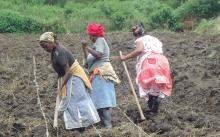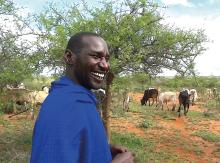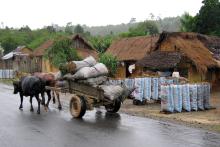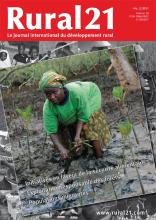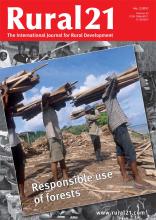Land Library
Welcome to the Land Portal Library. Explore our vast collection of open-access resources (over 74,000) including reports, journal articles, research papers, peer-reviewed publications, legal documents, videos and much more.
/ library resources
Showing items 1 through 9 of 16.Following the end of apartheid, South Africa’s government set itself ambitious goals with a planned land reform. However, there have since been barely any changes in the country’s agricultural structure, and the positive impacts that were hoped for on rural livelihoods have hardly materialised.
The year 2016 marks 15 years since the new wave land reforms became operational in Tanzania. Despite its ambitious goals – encouraging land registration and titling, and empowering women and other vulnerable groups – the results are disillusioning.
Fuelwood and charcoal continue to be indispensable in cooking the daily meal for most people in sub-Saharan Africa; in addition, wood as a fuel represents an important source of income.
Liberia’s government seeks to put greater emphasis on integrated cash/food crop systems with broad-based farmer participation. However, shortcomings in regulations on land transactions could threaten livelihoods in what is already a vulnerable country.
L’importance des forêts pour atténuer le changement climatique et favoriser la conservation des espèces, comme moyen de stockage de l’eau, de production d’oxygène, de protection du sol et comme source d’humus, est bien connue.
Le Partenariat pour les Forêts du Bassin du Congo vise à concilier la protection des écosystèmes forestiers et leur utilisation pour le développement des pays d’Afrique centrale. Cet article présente ce qu’un «réseau stratégique» de ce type peut donner comme résultats, ainsi que ses limites.
Dans les pays en développement, le secteur des combustibles bois constitue une importante source d’énergie, qu’il s’agisse du bois de chauffage ou du charbon de bois, et de moyens d’existence pour les pauvres vivant en milieu rural, aussi bien en termes de création d’emplois que de génération de
The importance of forests for climate change mitigation and species conservation, as water stores and oxygen producers, soil protectors and humus providers, is well known. However, over 13 million hectares of forest are lost each year, mainly in the tropics.
Certification is viewed as one of the most effective ways of curbing unregulated logging and conserving natural forests in the tropics. In the meantime, there are several dozen certifying organisations.

